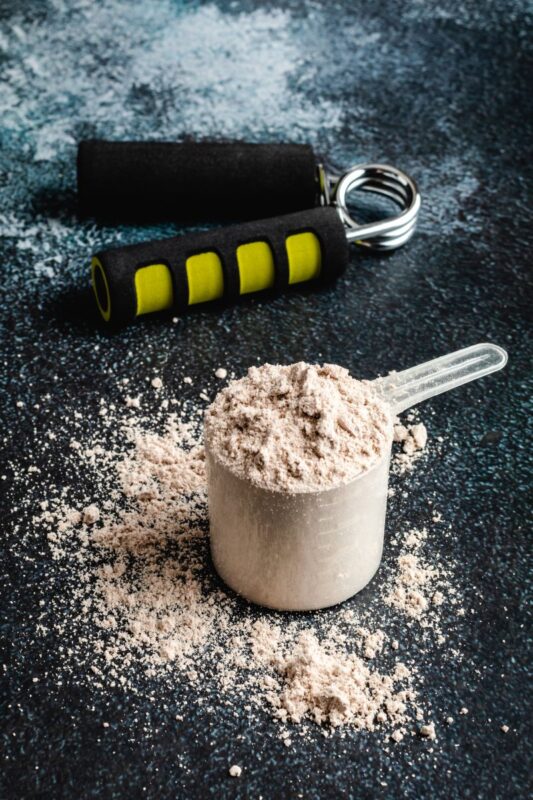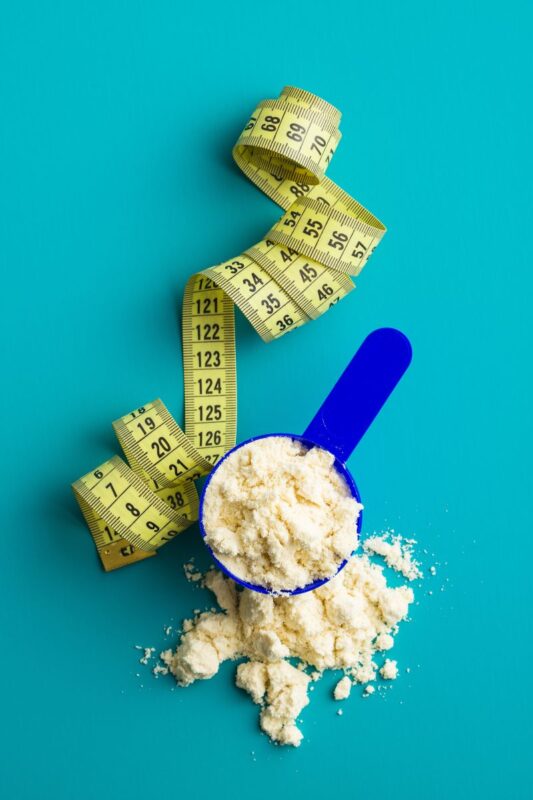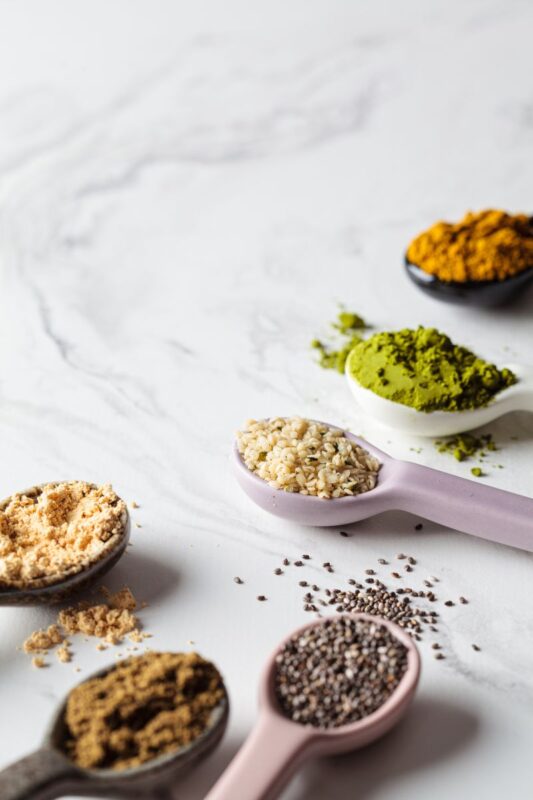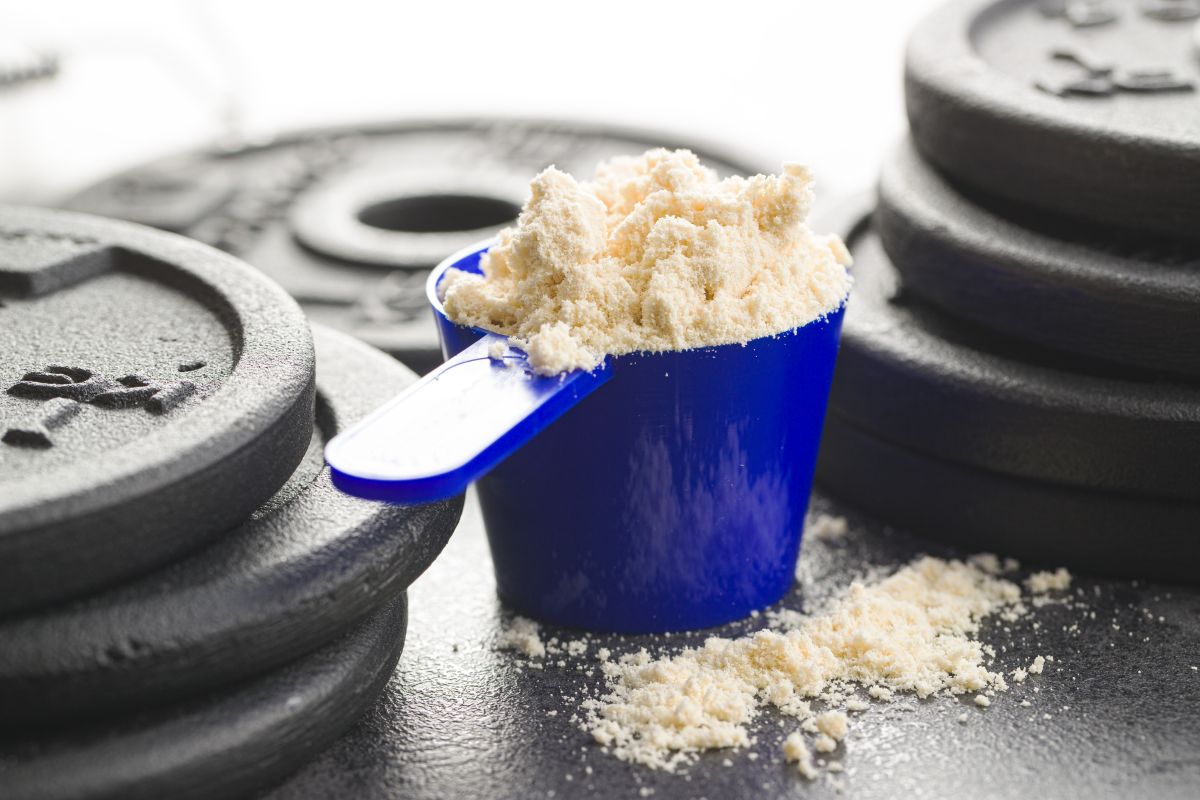After being diagnosed with NAFLD, have you been warned against eating almost everything to the extent of confusion? This article is for you, as it is going to shed some light on protein powder consumption if you have a fatty liver disease.
I will share with you both my own experience, as well as scientifically proven data on protein powder. This way, you can learn if it’s good for your diet and if you can or should have it or not.
Adding extra protein to one’s diet has been confirmed, by various studies, to help reduce the fat content in the liver. Therefore, we can conclude that protein powder is safe for those suffering from a fatty liver disease.
Despite the rampant diagnosis of fatty liver in recent years due to various factors, you probably know already that there is no actual medicine for it. We have to stick to eating a healthy diet (like the one I recommend here) and making the required lifestyle changes.
While a balanced diet will give us all the protein we need to reverse fatty liver, we can say that it is considered generally safe to add protein powder to your daily meals. Especially if you don’t have enough overall.
I do have to say that some studies discourage the addition of extra protein – including in powder form – in a fatty liver diet as it is thought to further damage the liver and even the kidneys.

But the studies supporting the beneficial effects are numerous and should not be ignored either. You can check out the studies, in-depth, here or here for whey protein.
Finally, experts at LiveStrong also agree that protein (including protein powder) is good for the liver and can help you in your quest to reverse this disease.
Is protein powder good for fatty liver?
Yes, protein powder (and protein in general) is considered safe if you have a fatty liver disease. It is good because it helps reduce the amount of fat stored in your liver, as well as regenerate the liver itself.
It is important to note that protein powders are good, provided they are incorporated into the diet in moderation, and note is taken of the additives that may be found in them and may damage the liver further.
In other words – be very careful with the type of protein powder you add to your diet. It’s usually best to meet your daily protein needs from a varied diet – at least this is what I did and it worked really well.
Can you take whey protein if you have a fatty liver?

According to the studies linked above, we can draw the conclusion that whey protein can be had as a supplement even if you have a fatty liver disease.
Any type of protein is expected to have the same beneficial effects over the liver – and our entire body.
Just make sure you’re not consuming it in excess, as too much protein might cause complications especially if you have a fatty liver disease.
Whey protein has been found to have anti-inflammatory and antioxidative action that reduces cellular damage. This is essential in the fatty liver so that it may not progress to more complicated problems.
WP also reduces liver enzyme levels, ALT, and AST, an indication that cellular injury has been reduced. ALT level is however more specific for the liver as AST may be produced by other organs.
The best option here would be to discuss it with your doctor and see how much protein you should have per day. Also, to find out if you do need to supplement with protein powder or not.
Different Types of Protein Powder

Protein powder is a protein concentrate that has been made to powder. They are taken to increase protein intake, especially by vegetarians and those with increased growth spurts like adolescents, bodybuilders, and pregnant women.
Protein powder is derived from either plant or animal sources. Plant proteins are thought to be inadequate as they lack some essential amino acids but they can still be used as part of the diet in fatty liver.
Plant protein powders include soy protein powder, rice protein powder, and pea protein powder.
The most common animal protein powders are whey protein and casein. Casein is derived from cow’s milk, mostly used to make cheese and it is slowly digested.
Whey protein is also derived from cow’s milk and is the most common on the market. It can be either a concentrate, an isolate, or a hydrolysate.
A concentrate is of the lowest quality and may have carbohydrates and fat when taken in high amounts it may worsen fatty liver.
An isolate has 90% of its weight as protein, therefore, it may be a bit pricy but is good in the fatty liver as it has lower amounts of fat and carbohydrates.
A hydrolysate has been treated, therefore, it is easily digested and tolerated by most people.
How to add Protein Powder to Your Diet
As always, I don’t encourage boring, tasteless, unappealing foods just because you got a diagnosis of something. Also never forget to ask your doctor about anything you are not very sure about and follow their instruction.
Back to how to add protein powder to your diet, you have various options available:
- adding the powder to your smoothies (check my article on various snack ideas for fatty liver)
- incorporating it in protein bars (make sure there are no sugars added). DREAM FUEL is my all-time favorite, but Rise Whey Protein Bars work well too (note: these are affiliate links).
- adding it to your oatmeal, coffee, soup, homemade guacamole, pancakes, and more.
Conclusion
In conclusion, protein powder is beneficial to not only people with the diagnosis of fatty liver but to the general health of every individual.
It should, however not be taken in excess as in this way, it may instead cause detrimental effects like high ammonia levels in the blood.
Note should also be taken while buying the powder on the ingredients as other additives may be harmful to the liver. Carbohydrate and fat levels should also be checked as high amounts may worsen your fatty liver disease instead of alleviating it.
I have to note that I didn’t personally focus on taking protein powder or any protein supplements early on in my diet to reverse my diagnosis.
However, later on I added protein bars (Dream Fuel – affiliate link – is my favorite still) and had them as a snack. I didn’t overdo it (maybe had one bar every 3-4 days as a treat) and I still managed to reverse my fatty liver.
So while I don’t think that you should add protein powder to speed up your healing, I don’t think it will do you any harm as long as your body needs it and you don’t go over the recommended daily values. It becomes even better when you don’t manage to get enough protein through your normal meals.
I hope this article has been helpful in your quest to the right diet when you have fatty liver. I would love to get your feedback and comments below.

I was diagnosed with a fatty liver back in 2014 and managed to reverse it by mid-2015. Since then, I’ve been studying it, continuously updating my knowledge with the latest scientific findings and practical approaches to give others the help they need to reverse their condition.
My approach to managing fatty liver is holistic, balancing scientifically-backed information with real-life, practical advice based on personal, direct experience.
I am also the admin of the Fatty Liver Support Group on Facebook and the Fatty Liver Subreddit.


thank you it was a big help thank you God bless 🙌